第10章 CHAPTER IV(3)
Oh, another thing. They are going to take me out and hang me in a little while--no, not for killing Professor Haskell. I got life-imprisonment for that. They are going to take me out and hang me because I was found guilty of assault and battery. And this is not prison discipline. It is law, and as law it will be found in the criminal statutes.
I believe I made a man's nose bleed. I never saw it bleed, but that was the evidence. Thurston, his name was. He was a guard at San Quentin. He weighed one hundred and seventy pounds and was in good health. I weighed under ninety pounds, was blind as a bat from the long darkness, and had been so long pent in narrow walls that I was made dizzy by large open spaces. Really, mime was a well-defined case of incipient agoraphobia, as I quickly learned that day Iescaped from solitary and punched the guard Thurston on the nose.
I struck him on the nose and made it bleed when he got in my way and tried to catch hold of me. And so they are going to hang me. It is the written law of the State of California that a life-timer like me is guilty of a capital crime when he strikes a prison guard like Thurston. Surely, he could not have been inconvenienced more than half an hour by that bleeding nose; and yet they are going to hang me for it.
And, see! This law, in my case, is EX POST FACTO. It was not a law at the time I killed Professor Haskell. It was not passed until after I received my life-sentence. And this is the very point: my life-sentence gave me my status under this law which had not yet been written on the books. And it is because of my status of life-timer that I am to be hanged for battery committed on the guard Thurston. It is clearly EX POST FACTO, and, therefore, unconstitutional.
But what bearing has the Constitution on constitutional lawyers when they want to put the notorious Professor Darrell Standing out of the way? Nor do I even establish the precedent with my execution. Ayear ago, as everybody who reads the newspapers knows, they hanged Jake Oppenheimer, right here in Folsom, for a precisely similar offence . . . only, in his case of battery, he was not guilty of making a guard's nose bleed. He cut a convict unintentionally with a bread-knife.
It is strange--life and men's ways and laws and tangled paths. I am writing these lines in the very cell in Murderers' Row that Jake Oppenheimer occupied ere they took him out and did to him what they are going to do to me.
I warned you I had many things to write about. I shall now return to my narrative. The Board of Prison Directors gave me my choice: a prison trustyship and surcease from the jute-looms if I gave up the non-existent dynamite; life imprisonment in solitary if Irefused to give up the non-existent dynamite.
They gave me twenty-four hours in the jacket to think it over. Then I was brought before the Board a second time. What could I do? Icould not lead them to the dynamite that was not. I told them so, and they told me I was a liar. They told me I was a hard case, a dangerous man, a moral degenerate, the criminal of the century.
They told me many other things, and then they carried me away to the solitary cells. I was put into Number One cell. In Number Five lay Ed Morrell. In Number Twelve lay Jake Oppenheimer. And he had been there for ten years. Ed Morrell had been in his cell only one year.
He was serving a fifty-years' sentence. Jake Oppenheimer was a lifer. And so was I a lifer. Wherefore the outlook was that the three of us would remain there for a long time. And yet, six years only are past, and not one of us is in solitary. Jake Oppenheimer was swung off. Ed Morrell was made head trusty of San Quentin and then pardoned out only the other day. And here I am in Folsom waiting the day duly set by Judge Morgan, which will be my last day.
The fools! As if they could throttle my immortality with their clumsy device of rope and scaffold! I shall walk, and walk again, oh, countless times, this fair earth. And I shall walk in the flesh, be prince and peasant, savant and fool, sit in the high place and groan under the wheel.